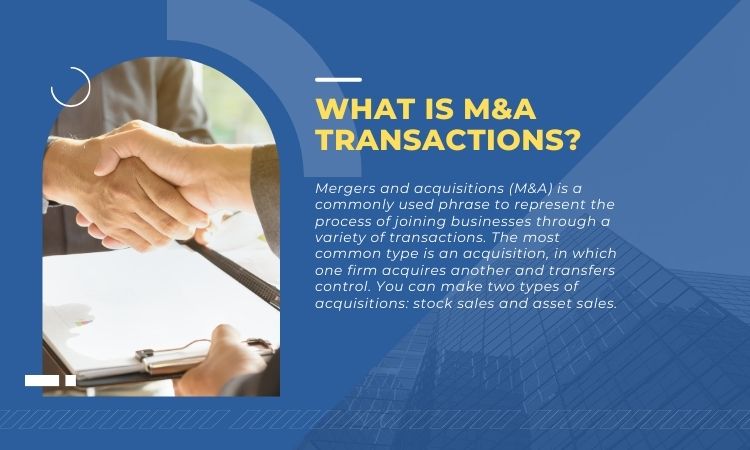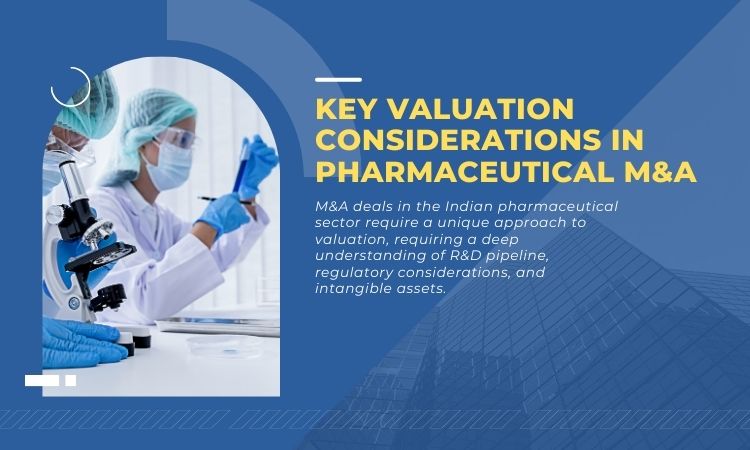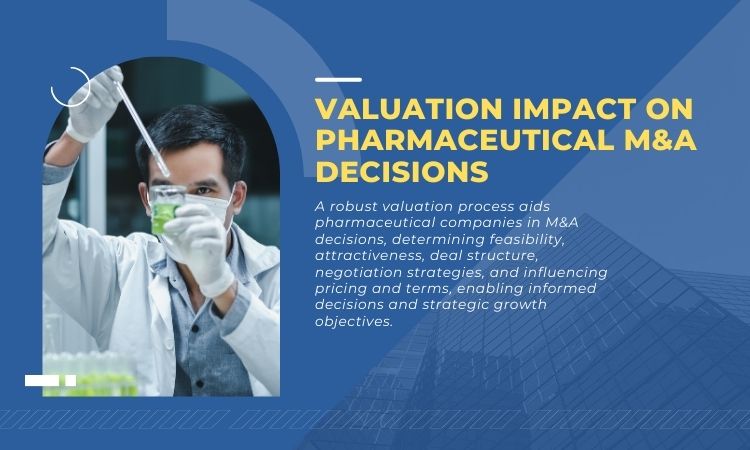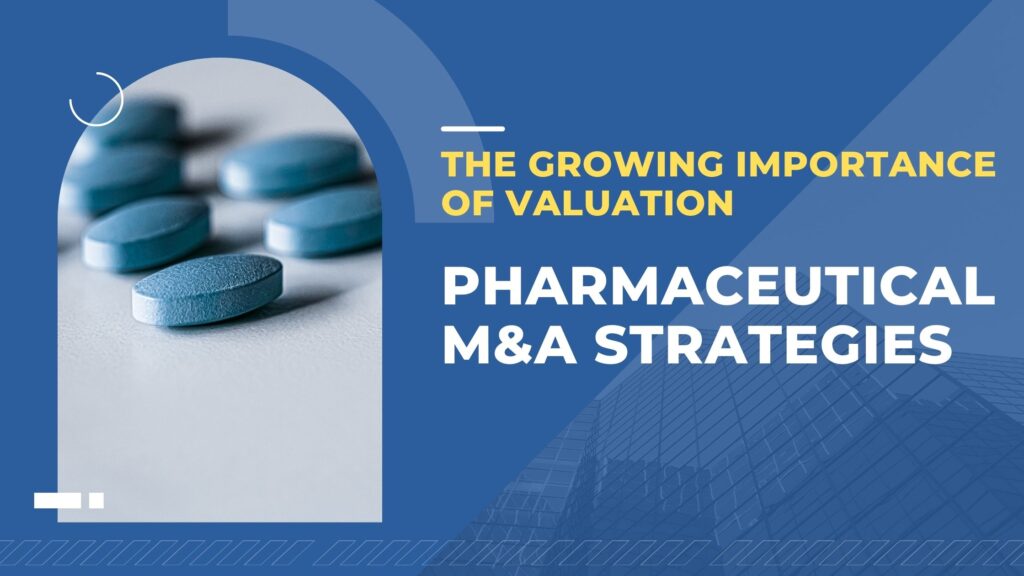The Indian pharmaceutical industry is increasingly utilizing strategic M&A transactions to achieve growth and optimize their portfolios. These transactions involve the consolidation or acquisition of assets or entire business units between companies. Valuation plays a critical role in pharmaceutical M&A, impacting strategic decisions throughout the process.
This trend of M&A activity presents exciting opportunities for pharmaceutical companies in India. Through strategic acquisitions and divestitures, companies can achieve several benefits. M&A allows them to expand their product portfolio, access new markets, and acquire valuable R&D capabilities. Additionally, M&A can facilitate targeted investments and partnerships, leading to accelerated growth for the involved companies.
However, the success of a pharmaceutical M&A transaction hinges on a robust valuation process. An accurate assessment of the target company’s or business unit’s fair market value is crucial for various reasons. We will explore these reasons and delve deeper into the Valuation Impact on Pharmaceutical M&A Strategies in India throughout this blog post.
Table of Contents
ToggleKey Valuation Considerations in Pharmaceutical M&A
Accurately valuing pharmaceutical targets, whether entire companies or specific assets, presents unique challenges in M&A deals. Understanding these complexities is crucial for making informed decisions throughout the transaction process. Here are some key considerations:
Unique Challenges in Pharmaceutical M&A Valuation
Valuing the R&D Pipeline:
A significant portion of a pharmaceutical company’s value lies in its pipeline of potential drugs. However, these assets are inherently uncertain, with the success rate of clinical trials and regulatory approvals playing a major role in their ultimate value. Valuation professionals must employ specialized techniques to assess the potential future cash flows associated with the R&D pipeline.
Regulatory Considerations:
The pharmaceutical sector is extensively regulated, with specific criteria for medication research, testing, and marketing. These regulations can impact the timeline and cost of bringing a drug to market, which must be factored into the valuation process. Delays or setbacks caused by regulatory hurdles can significantly affect the target’s projected cash flows.
Intangible Assets:
Pharmaceutical companies rely heavily on intangible assets like intellectual property (patents, trademarks), brand recognition, and proprietary technology. Valuing these intangible assets requires specialized expertise and may involve specific valuation methodologies tailored to the pharmaceutical sector.

Adapting Valuation Methodologies
Traditional valuation methodologies used in M&A deals need to be adapted to account for the unique characteristics of the pharmaceutical industry. Here’s how two common methods are adjusted:
Discounted Cash Flow (DCF) Analysis:
While DCF is a core valuation tool, it requires careful forecasting of future cash flows in the pharmaceutical context. This includes accounting for potential R&D breakthroughs, regulatory timelines, and the lifecycle of pharmaceutical products
Transaction Multiples:
Transaction multiples, which rely on comparable past M&A deals, can be a useful benchmark. However, identifying truly comparable transactions in the pharmaceutical industry can be challenging due to the inherent variability of R&D pipelines and regulatory landscapes.
Importance of Market Precedent Transactions
Analyzing past M&A deals involving similar pharmaceutical companies or assets provides valuable insights for valuation. However, it’s crucial to consider the specific details of these precedent transactions. Factors like the stage of development of the target’s R&D pipeline, the therapeutic focus area, and the regulatory environment surrounding the deal should be carefully compared to ensure a truly relevant comparison.
By understanding these unique challenges and adapting valuation methodologies accordingly, pharmaceutical companies can ensure a more accurate assessment of potential targets in M&A transactions. This, in turn, leads to informed deal structures, fair negotiations, and ultimately, successful M&A strategies that drive growth in the Indian pharmaceutical sector.

Valuation Impact on Pharmaceutical M&A Decisions
A robust valuation process plays a critical role in guiding pharmaceutical companies throughout the M&A decision-making process. Here’s how valuation impacts these decisions:
Feasibility and Attractiveness:
- A reliable valuation helps companies determine the feasibility and attractiveness of a potential M&A transaction.
- By accurately assessing the target’s fair market value, companies can weigh the potential benefits (e.g., market access, R&D pipeline) against the financial costs of the deal.
- This analysis allows them to make informed decisions about whether to pursue the M&A or explore alternative strategies.
M&A Deal Structure:
- Valuation significantly influences the structure of the M&A deal.
- The target’s valuation directly impacts the pricing and terms of the transaction.
- For example, a high valuation for a company with a promising R&D pipeline might lead to a higher upfront cash payment or a stock-based deal that allows the acquiring company to share in the future success of the pipeline.
Negotiations with Buyers or Sellers:
- A well-supported valuation provides a strong foundation for negotiations with potential buyers or sellers in an M&A scenario.
- Having a clear understanding of the target’s fair market value allows companies to negotiate from a position of strength and ensure they achieve a fair outcome in the deal.
- This can be particularly crucial in competitive bidding situations where multiple companies are vying for the same target.\
In essence, a robust valuation serves as a compass, guiding companies towards successful M&A transactions in the dynamic world of pharmaceutical M&A. It empowers them to make informed decisions, negotiate effectively, and ultimately, achieve strategic growth objectives.
The Role of a Valuation Expert in Pharmaceutical M&A
Marcken Consulting's Valuation Team:
Our team of valuation professionals, including an IBBI Registered Valuer, brings deep industry knowledge and expertise to pharmaceutical M&A. We understand the unique challenges of valuing R&D pipelines, intangible assets, and regulatory considerations.
Navigating Valuation Complexities:
We help companies navigate the intricacies of valuing pharmaceutical targets by:
- Selecting and adapting valuation methodologies
- Quantifying intangible assets
- Analyzing relevant market precedent transactions
Benefits of a Qualified Valuation Professional:
- Credibility & Objectivity: An independent valuation report by a certified professional adds credibility and objectivity to the M&A process.
- Regulatory Compliance: Our team ensures the valuation process adheres to relevant regulations.
- Experience & Efficiency: Our expertise saves companies valuable time and resources.
Partnering with Marcken Consulting’s valuation team provides pharmaceutical companies with a significant advantage in M&A. Our expertise and commitment to compliance ensure a reliable valuation that supports successful M&A outcomes.

Conclusion:
A robust valuation strategy is instrumental for navigating the complexities of pharmaceutical M&A in India. By understanding the valuation impact and leveraging the expertise of qualified professionals, companies can make informed decisions and achieve their strategic growth objectives through successful M&A transactions. Contact Marcken Consulting today to discuss your specific pharmaceutical M&A valuation needs.
Frequently Asked Questions
Q1. What are the biggest challenges in valuing pharmaceutical companies for M&A deals?
The biggest challenges include valuing the R&D pipeline, factoring in regulatory hurdles, and accurately assessing intangible assets like intellectual property.
Q2. How is valuation used in pharmaceutical M&A decisions?
Valuation helps determine the feasibility and attractiveness of a deal, influences the M&A structure (pricing and terms), and strengthens negotiations with potential buyers or sellers.
Q3. How do market precedent transactions influence pharmaceutical M&A valuation?
Analyzing past M&A deals involving similar companies or assets provides benchmarks for valuation. However, careful consideration is needed to ensure the chosen precedents are truly comparable in terms of R&D stage, therapeutic area, and regulatory environment.


